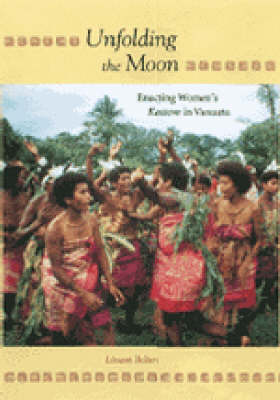In the first decades after independence in 1980, kastom - indigenous knowledge and practice - became a key marker of ni-Vanuatu identity. However, it was almost entirely concerned with men. Then in 1991 the Vanuatu Cultural Centre initiated a project that focused on women's knowledge and skill in producing plaited pandanus textiles (mats) on the island of Ambae in north Vanuatu. This acknowledgment that ""women have kastom too,"" widely welcomed by rural ni-Vanuatu, was a significant step in establishing women's kastom. Lissant Bolton's account of this important but undocumented period considers the circumstances that led to these events and analyzes their effects on Ambae, Her ethnography of women's production and use of plaited pandanus textiles shows a changing world whereby colonial and missionary ideas about the position of women and feminist discourses on women's rights have engaged with specific, kinship-based constructions of gender to create contemporary ni-Vanuatu views on the position of women.
- ISBN10 0824825357
- ISBN13 9780824825355
- Publish Date 31 January 2003 (first published 31 December 2002)
- Publish Status Out of Print
- Out of Print 18 February 2014
- Publish Country US
- Imprint University of Hawai'i Press
- Format Hardcover
- Pages 216
- Language English
